Take These Steps to Prevent Liver Cancer
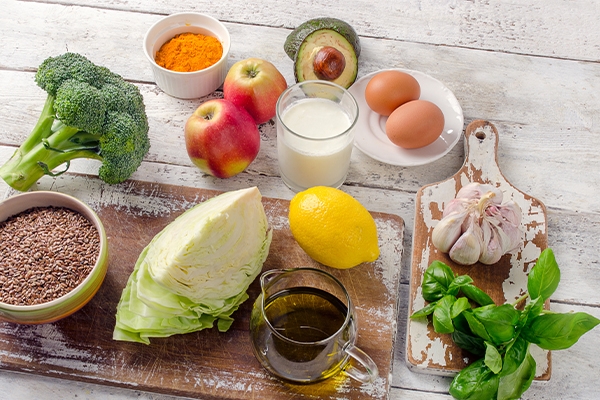
Only a few people think about their liver health. The liver is one of our body's most significant and vital organs. The liver is responsible for 300 functions, such as supporting metabolism, detoxifying, maintaining immunity, and storing vitamins. The liver weighs 2% of our body.
Unfortunately, many daily habits can increase the risk of liver disease. To keep the liver healthy, here are some good habits that we need to do:
1. Pay attention to nutritious and balanced food intake
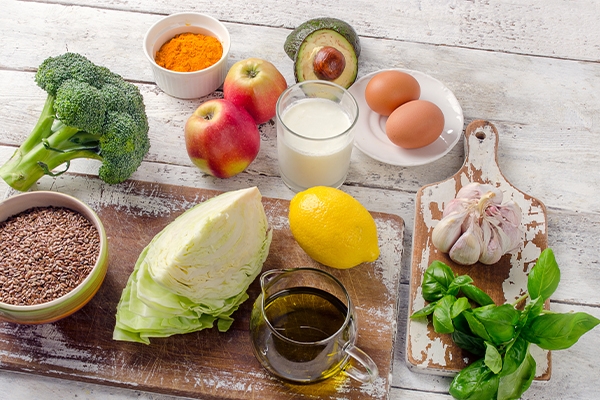
According to the American Cancer Society, people with obesity have a higher risk of being diagnosed with liver cancer because they are susceptible to conditions such as diabetes and fatty liver disease.
Therefore, consuming foods rich in antioxidants, such as vegetables, fruits, and whole grains is essential. These foods help protect the liver from damage caused by inflammation and free radicals and also help maintain a healthy digestive system.
Instead, avoid foods that are high in sugar.
- saturated or trans fats, such as red meat, full-fat milk, and pastries;
- added sugars, such as sweetened beverages, cakes, cookies, and candy;
- salt, such as high-sodium canned soups, processed meats, and potato chips;
- aflatoxins, a toxic substance released from mold that can contaminate corn, beans, rice, and dairy products;
- alcohol.
It’s also essential to avoid eating undercooked fish or shellfish, such as raw oysters or sushi. These foods contain bacteria that can cause serious illness in people with liver disease.
2. Reduce salt
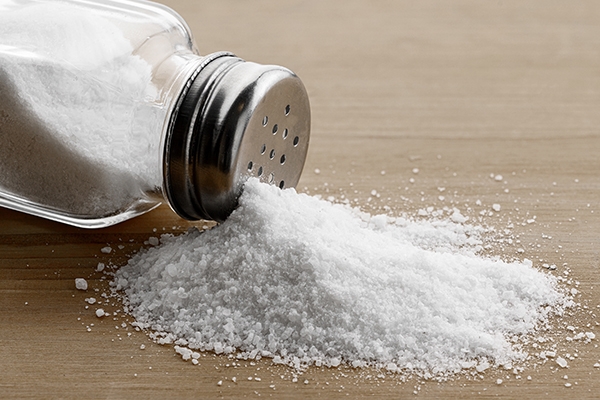
Salt can indirectly cause damage to liver tissue by increasing blood pressure. Chronic hypertension can worsen liver conditions.
In addition, a problematic liver can cause extra fluid to build up in the abdominal cavity, a condition called ascites. According to the American Liver Foundation, salt can worsen this problem. When you consume salt, it is absorbed into the bloodstream, which can worsen fluid buildup in the abdominal cavity.
According to Johns Hopkins Medicine, excess water in the abdominal cavity can cause bloating, difficulty breathing, indigestion, nausea, and vomiting.
3. Taking medications as directed
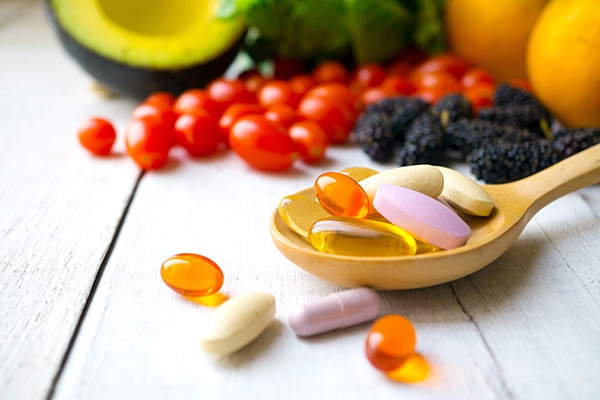
The medications you need depend on the cause of your liver damage. For example, if cirrhosis is caused by long-term viral hepatitis, you may be prescribed antiviral drugs.
You may be given medication to relieve the symptoms of cirrhosis, such as:
- diuretics, used in combination with a low-salt diet to reduce the amount of fluid in your body, which helps with swelling (edema)
- medicines to help with blood pressure in the central vein that carries blood to your liver (portal hypertension).
- prescription creams to relieve itching of the skin.
4. Stay hydrated
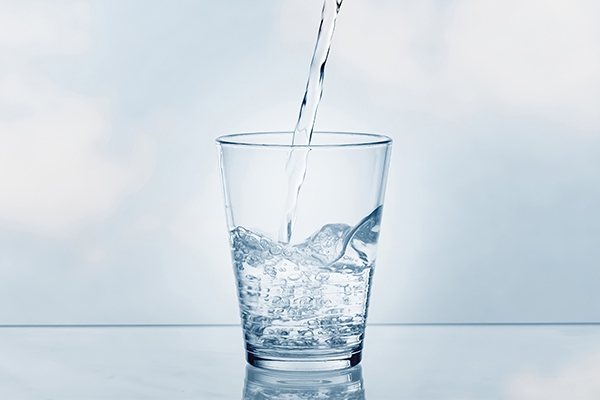
Our bodies contain more than half water. Therefore, water helps keep our body functions healthy. That goes double for your liver!
When you are dehydrated, your liver function decreases because it doesn’t have enough water to help remove waste from your body.
Hydration allows your blood to flow more easily through your liver, making it easier for your liver to filter out toxins, such as alcohol, or exposure to chemicals in your body.
Drink water when you wake up, before you eat, before and after physical activity, and before you go to bed. This ensures that your liver has what it needs to function correctly.
5. Exercise

A healthy liver breaks down toxins and drugs, maintains blood sugar levels, and supports the immune system.
Exercise can help reduce the amount of fat in the liver. Adults are advised to get at least 150 to 300 minutes of exercise per week or 75 to 150 minutes of vigorous activity.
Regular exercise can help:
- stimulate the liver's metabolic processes
- reduce liver inflammation
- reduce fat buildup in the liver, especially in nonalcoholic fatty liver disease (NAFLD).
- improve blood vessel dilation and function
- lower the risk of liver cancer and fibrosis
- reduce excess body fat, associated with an increased risk of certain liver diseases.
- improve your mood, which can help you avoid mental health issues like depression and anxiety.
6. Maintain ideal body weight
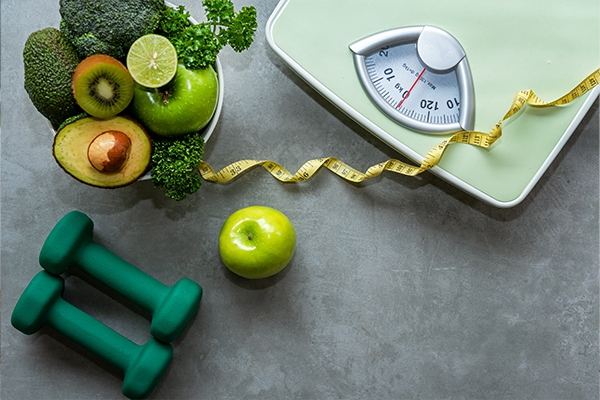
Obesity directly affects many hormones that can trigger the formation of cancer cells and inhibit apoptosis (cell death). Excess fat in the body also causes an inflammatory response, which can contribute to the initiation and development of some cancers. In addition, obesity is a risk factor for NAFLD, which can develop into cirrhosis and raise the risk of liver cancer.
Consuming healthy and nutritious foods and exercising are necessary to maintain an ideal body weight.
7. Maintain your personal hygiene
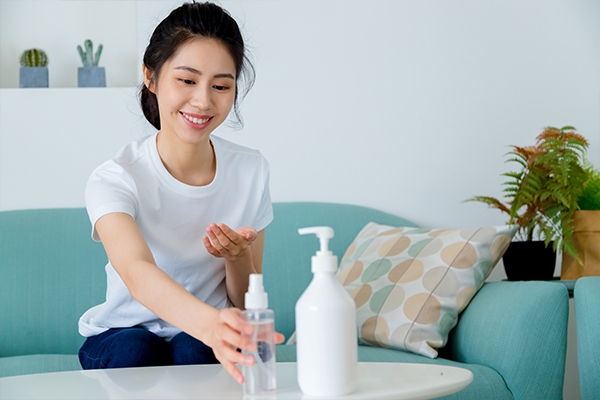
Do not share personal hygiene items. Hepatitis viruses can contaminate personal items, such as razors, toothbrushes, and nail clippers, that may carry blood or other potentially infected body fluids.
Practice safe sex. Having sex without a condom or with multiple partners increases the risk of hepatitis B and hepatitis C.
Wash your hands. Use soap and warm water immediately after using the bathroom, changing a diaper, and before cooking or eating.
8. Vaccination
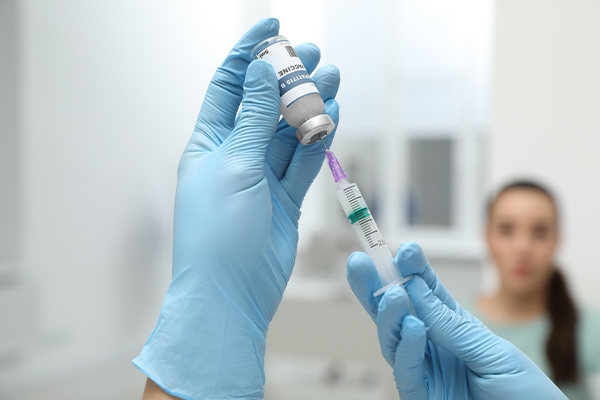
Get vaccinated to protect against hepatitis B. The hepatitis B vaccine is safe and effective and is recommended for all infants at birth and children up to age 18. It is also recommended for adults with diabetes and those at high risk for infection because of their occupation, lifestyle, living situation, or country of birth.
Because everyone is at risk, all adults should consider getting the hepatitis B vaccine for lifelong protection against chronic liver disease.
The hepatitis B vaccine is also known as the first "anti-cancer" vaccine because it prevents hepatitis B, the leading cause of liver cancer worldwide.
To date, there is no vaccine for hepatitis C.
Vaccination at GWS Medika clinic
To protect yourself and your family, you can get vaccinated at the GWS Medika Clinic, a health clinic in Jakarta.
In 2010, the Indonesian Pediatrician Association (IDAI) recommended administering the Hepatitis B vaccine three times: immediately after birth, at one month, and at six months.
Infants can receive the hepatitis B vaccine with other vaccines, such as BCG, DPT, Polio< HB, and PCV. Children or adolescents who have never received the Hepatitis B vaccine at the recommended age can immediately receive the vaccine as many as three doses at intervals of 0, 1, and 6 months.
**
The liver is an organ and gland that performs hundreds of vital functions for human life. Many common conditions and diseases can damage the liver, but you can take steps to protect it.



